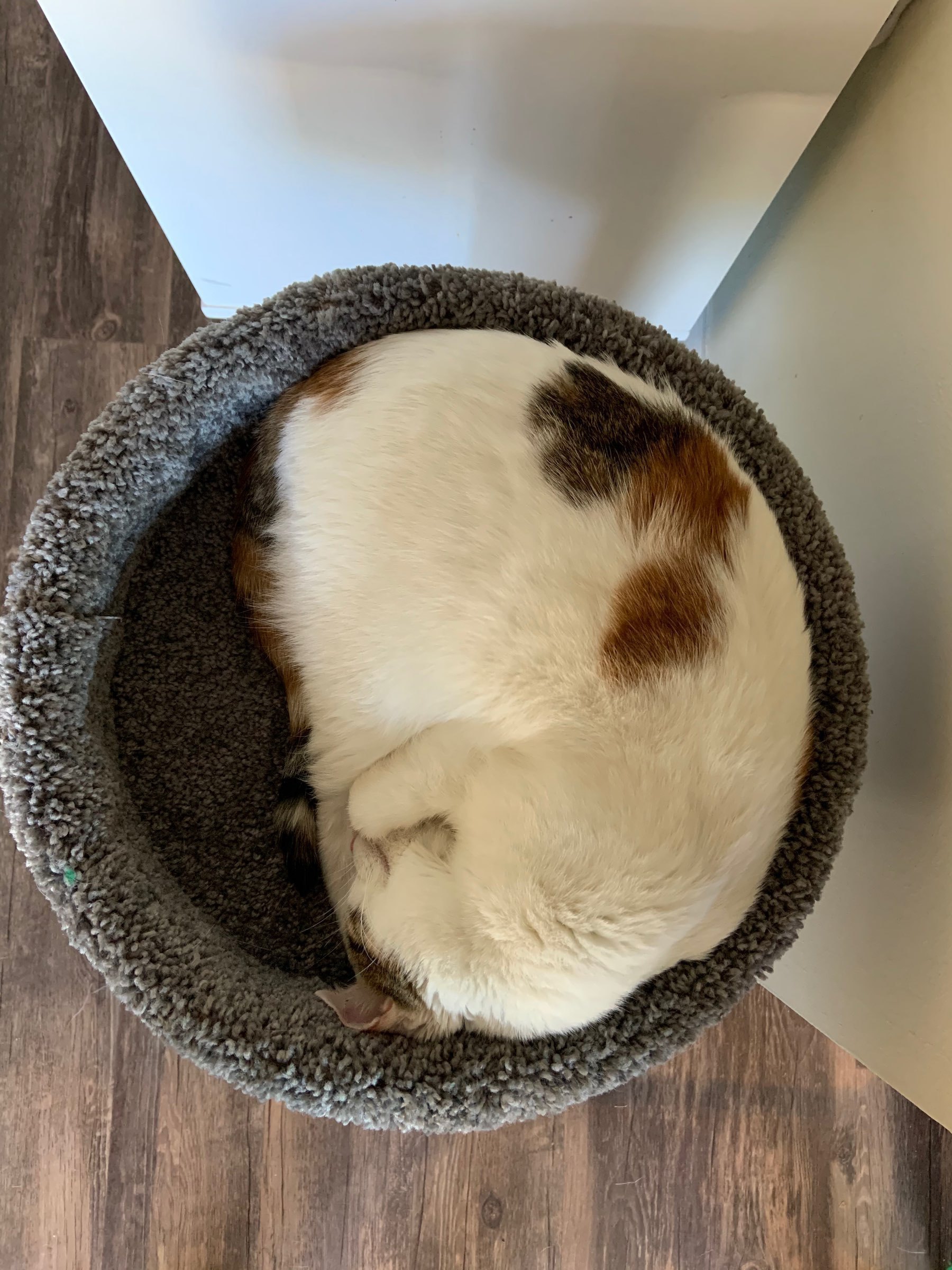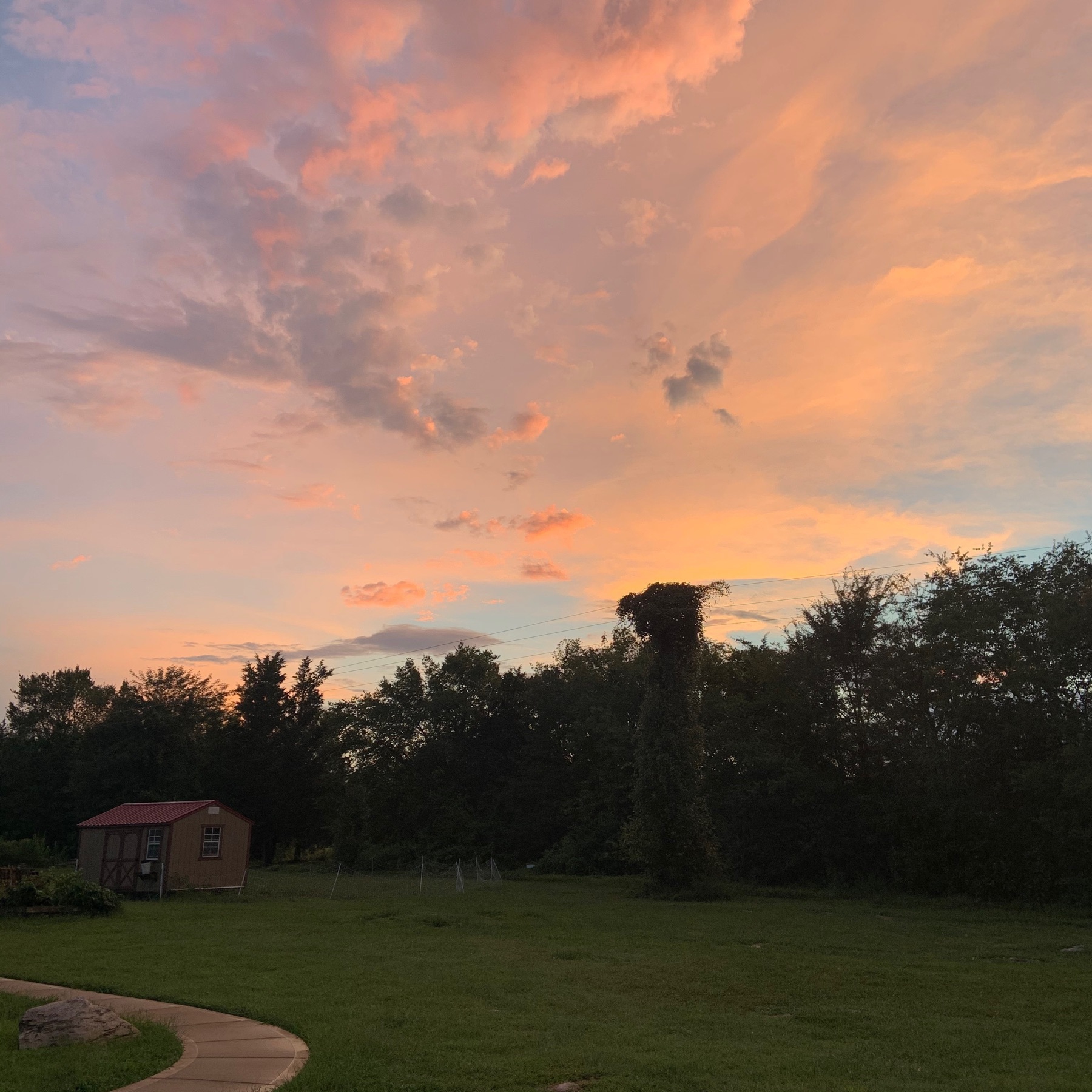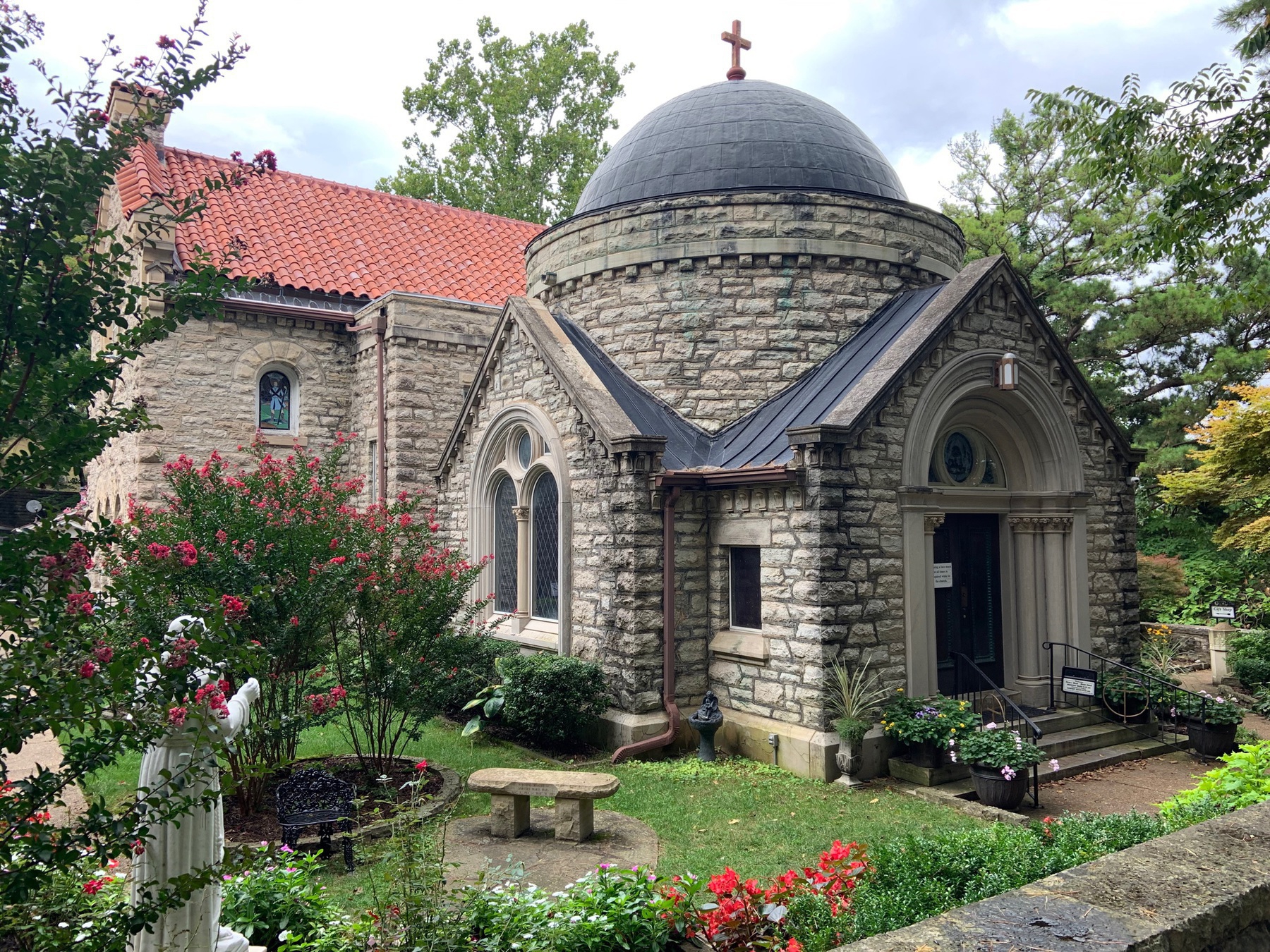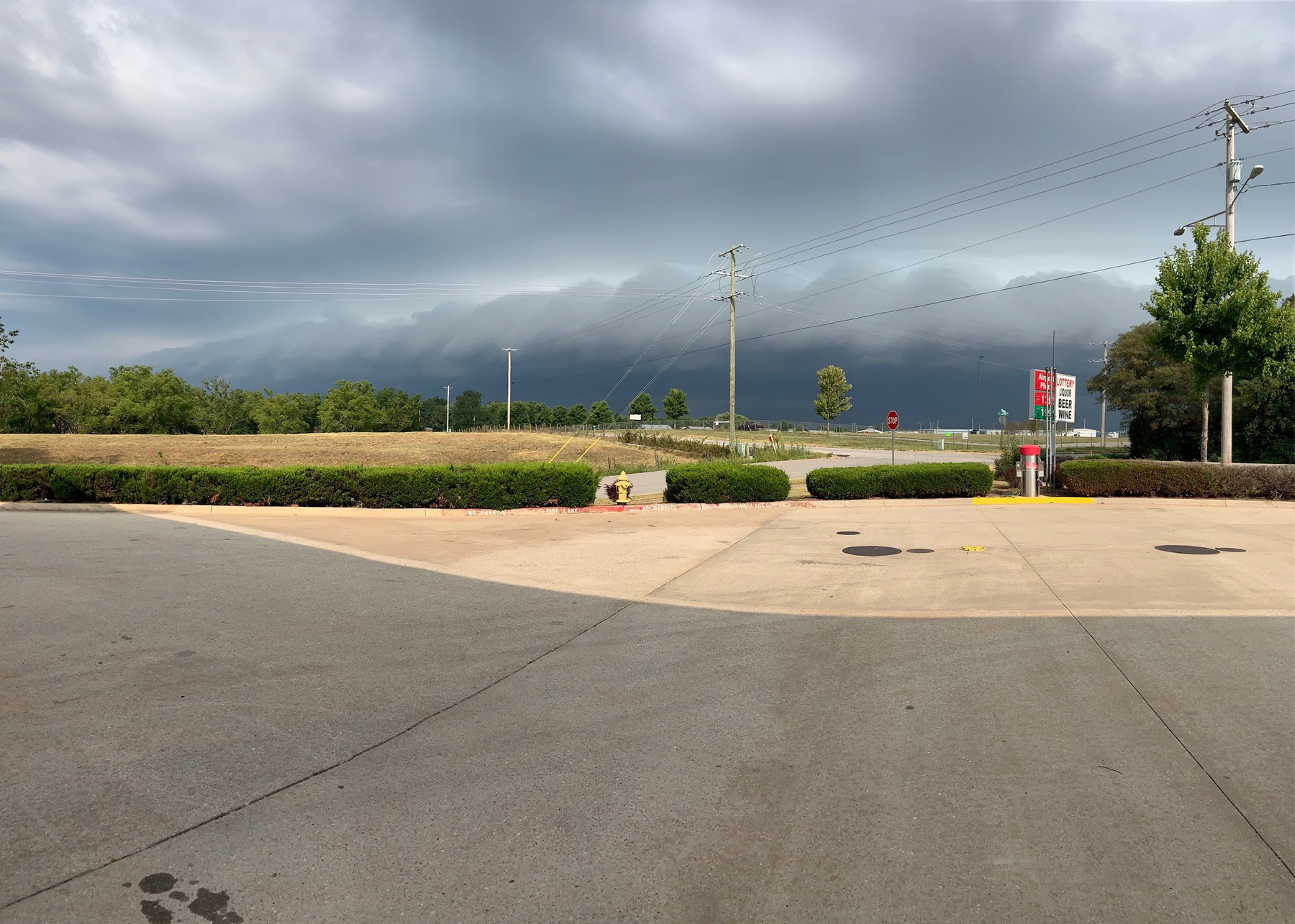Two briskets rubbed down and ready for the smoker tomorrow. Mesquite at the ready. Weather looking good. All systems go.
We just found a baby snapping turtle on our back patio. This was a surprise, since there aren’t any rivers or lakes within small-turtle-schlepping distance. Maybe he was dropped by a bird. He’s safe in a bucket and will be trundled to the river a few miles away.

More on discernment
Still chewing on discernment, and found this great essay by Sister Benedicta Ward which was very, very helpful. Discernment, as I originally thought, is closely related to prudence, though it would seem to be immediately prior to it. If prudence helps us to make the right decision, at the right time, and for the right reasons, discernment serves to first seek out the will of God. We can only do this if we escape the trap of mistaking our own will for His; this in turn requires first emptying the self. In short, humility.
Sr. Benedicta:
This [humility] is a refusal to exercise the judgement which condemns others, that killing self-assertion that was the cause and result of the Fall and which continues to damage relationships with God and with others. This itch to condemn by our judgement can be transfigured into discernment which sees only the mercy and goodness of God in others. The way to allow this 'right judgement in all things' to be formed is through humility of heart which in practice involves a consistent refusal to exercise that self-assertion which forms hostile and negative judgements against the neighbour. The true 'judgement' of others which is discernment is the God's eye view, which is always positive: as the Cloud-author puts it, 'Not what thou art, nor what thou hast been seeth God with his merciful eyes but what thou wouldst be'.
Motes and beams, right? Echoes of St. Catherine of Siena, who wrote in The Dialogue
For you cast contempt on your neighbors when you pay attention to their ill will toward you rather than my will for them.
In other news, I've taken Twitter off my phone (again), and have taken the additional steps of blocking several of my reflexive go-to news sites at my workstation. I can't say I've left Twitter completely, though I've pared my following-list to exactly 100 accounts that cover mostly local information (government, weather, and so on) and a handful of other hams I've come to know online. Brands and personalities are gone. Ditto for what remains of my Instagram account: stripped down to family only and set to private. RSS feeds are again on the ascent for me, so that's going to be it for awhile. Hopefully forever.
Early into Cassian's Conferences
Have you ever read something so carefully that it comes back to you while you're sleeping? This is happening now with Cassian. I take this to be a good thing, and have been ruminating on the following bits from the first two Conferences so far:
First, as I posted the other day, our disciplines, plans, vigils, and other actions should (indeed, must) take second place to the law of charity. Whatever good we sought in prayer will be far outweighed by the anger we experience if we're interrupted by the good and necessary things around us. Our plans for the day may come to nothing; we will still encounter the Risen Christ in the everyday moments, and the moments-between-moments that we hardly notice. This ought to go without saying, but how many times have I thrown down my breviary, angry because something interrupted my plan for the moment? And that something was a child? Or a request from my wife? The whole of The Law and the Prophets comes to two sentences; I would do well to remember them early and often.
Second, Abba Moses addresses the distractions and thoughts that come to use while at prayer. While we may not be able to control the thoughts that come into our heads, we can certainly control our reactions to them. We can also influence the things that come into our heads by controlling what surrounds us the rest of the time, when we're not at prayer. The impact of this on our social media diets should be fairly obvious. In case it's not, here's my hot-take: social media is a raging trash fire. The less you use it, the happier you will be.
I'm still chewing on the meaning of discretion in the second conference. I had initially thought it was synonymous with prudence. I don't think that's the case and need to do some more reading and thinking. It seems to be closer to discernment. We could all do with more discernment.
What is gained by fasting is less than what is spent on anger
From the first Conference of John Cassian, In a meeting with Abba Moses, the Abba says
…If perchance we are unable to carry out some strict obligation of ours because we are prevented by some good and necessary business, we should not fall into sadness or anger or indignation, which we would have intended to drive out by doing what we omitted. For what is gained by fasting is less than what is spent on anger, and the fruit that is obtained from reading is not so great as the loss that is incurred by contempt of one’s brother.
Have you ever seen a pawpaw tree? Now you have. Pawpaws are a fruit tree native to North America and were fairly well-known a generation or so ago. The fruit doesn’t keep for long after it’s picked, so they’ve never been much of a commercial crop. I’ve heard that pawpaws sometimes show up at farmer’s markets. We planted this one a couple of years ago and it seems to be doing pretty well - it’s nearly as tall as I am. Hopefully it will fruit in a year or so but I may need to add a second one. Its principal pollinators are flies, so the blossoms are described as a bit on the stinky side. This one is planted well away from the house.
The fruit is said to be delicious - a cross between mango and banana, with a creamy custard-like texture.
An amateur naturalist's favorite mobile apps
Seek: for identifying (via live camera or still photos) of insects, birds, spiders, reptiles, amphibians, plants, fungi, and anything else you might find in your yard or on a hike. The regular challenges are fun too. Every person I've introduced to this app has gone completely gonzo. Remember how much of a blast PokemonGo! was a few years ago? This is just like that, except with real things all around you.
Skyview: I paid a couple of bucks for the full version, and use this at night for ID'ing stars, planets, and satellites.
Merlin Bird ID: By the Cornell Ornithology folks, you answer a few questions about a bird you saw (size? colors? what was it doing?) and it makes a pretty good guess of what it was. The same lab publishes a beta app for Android that identifies specific bird calls via microphone. My brother showed me this and I nearly jumped from iOS.
Theodolite: Camera/ARG app for measuring angles, bearing, distance. I use this when I'm eyeballing distant thunderheads and matching them up with I can see on the weather radar websites.
BlitzortungLive: Blitzortung is a crowdsourced global lightning detector. Volunteers run the pi-based detector hardware and strikes are immediately triangulated and put on a map. The live app updates pretty quickly, but sometimes there's a few seconds of lag between a bolt you see and its appearance on the map.
Runner-up: Rockd, which tells you all about the geology you're standing on.
Walker Percy
I have since finished Love in the Ruins and The Thanatos Syndrome. They were great. Love in the Ruins is an interesting product of its time - an end-of-the-world novel written in 1971 that's set somewhere in the imagined 1980s. It holds up pretty well to be honest, with a sort of semi-dark hilarity that's definitely reminiscent of contemporary movies and TV shows - think M*A*S*H (the movie). The political predictions alone will make it worth revisiting. Maybe certain predictions didn't land as well as jokes because, lo, they've basically come to pass.
The Thanatos Syndrome is a sequel inasmuch as it features the same main character (and several others) but it stands on its own and you needn't have read the other book first to enjoy it. I remember reading it, probably in college, based on the title and general conspiracy-plot description. The Catholic elements completely escaped me at the time, so it was well-worth revisiting. Have re-tackled the adventures of Dr. Tom More, Louisiana psychiatrist and self-described terrible Catholic, I'm probably going to add The Moviegoer and Lost in the Cosmos to the bookshelf soon.
As it is, I'm done with my fiction break and diving back into spiritual reading: The Conferences of John Cassian. I bought a copy of it on Amazon only to find out afterward that it's a selection of nine conferences and not the complete set. The introductory material is terrific, though, so I'm reading it while waiting for a full edition to arrive. And it will arrive just in time - we're about to hit the road for a funeral in the Ozarks and some meaty reading will be an extremely welcome distraction.
I seem to keep gravitating to the mystics and monastics - Bernard of Clairvaux and before that, Catherine of Siena. The Rule of St. Benedict. The Daily Office. What has this quarantine been but a sort of monastic enclosure of circumstance, where we live in community, occasionally receive guests, pray, and go about our daily work? Where we meet God in the ordinary moments of the day, in those others before us, and reflected in created beauty? Where, if we are honest, we fail, and seek the grace to rise again, and hasten along the path? Where we listen?
Migrating from jekyll
So I migrated over from github’s pages, which meant I had all of my old markdown posts stored locally. I had asked the micro.blog support folks about migration awhile back and was directed to a nifty little import script which used nodejs. But lo, in the meanwhile, an import button had showed up!
I still needed to insert the date into the frontmatter. My old posts had the date pre-pended to the filename (ie, 2020-01-08-some-title-here.markdown), so after bashing (har) my head against the wall for awhile, I came up with this, which cuts the leading date fields off the file and jams it into place at line 3. Hooray for Unix.
for i in `ls *.markdown`
do
sed -i "3a\date: `ls $i | cut -d- -f1,2,3`" $i
done
So I went from this at the top of every post:
---
layout: post
title: June Update
---
to this, which was slurped in beautifully:
---
layout: post
title: June Update
date: 2020-07-02
---
Yes, there are other ways to do this. Go nuts. This worked for me. I zipped everything up afterward and had all my old posts moved over lickety-split.
June Update
I just finished Paul Elie’s The Life You Save May Be Your Own, which traces
the respective biographies of Flannery O’Connor, Thomas Merton, Dorothy Day, and
Walker Percy into a beautiful and engaging story of a particular moment in
American Catholicism. Merton and Day’s stories I already knew, having read The
Seven Storey Mountain and The Long Loneliness some time ago. O’Connor I knew
from studying Southern Lit in college and working my way through her complete
short stories, collected letters (Habit of Being, published posthumously), and
Wise Blood. Percy I knew only sort of obliquely. I read The Thanatos
Symdrome in high school or maybe college, intrigued by the general plot but
missing buy a country mile any sort of religious threads. I should probably
add it to the on-deck list along with Love In The Ruins.
As it is, I’ve got The Violent Bear It Away and the selected writings of St. Bernard of Clairvaux on the way. Also a guide on identifying wild edible plants, which has become sort of interest of mine recently. Off the top of my head, I can think of the following things growing in and around our yard which are said to be edible if not actually tasty: prickly pear cactus, red mulberry, blackberries, American persimmons (male trees which will not fruit), Passionflower vines, elderberries, and (if you can get them before every bird) black cherries. There’s plenty of wood sorrel and I’d wager purslane somewhere if I knew what it looked like.
I woke up with some terrible stomach cramps today. They seem to be on the way out, but it’s telling that in trying to figure out their cause, my wife looked at me archly and asked whether or not I had eaten anything I’d had found in the yard. The answer was no, if you were wondering.
So - we’ve had a fair amount of rain lately and the gardens are growing like crazy. The peppers look very promising and, mirabilis dictu, we’re keeping up with the zucchini production. I’ve been meaning to get some pumpkin hills planted so that we might have pumpkins by October. Maybe over the holiday weekend. As it is, we’ll be well-supplied with weird gourds. Several from last year were thrown into the compost heap and they’ve grown like Audrey III. I don’t think we can eat them or do anything but look at them, but they’re growing so well I don’t have the heart to pull them up.
RCIA-wise, I have taken over the neophyte year meetings, which we’ve been doing over Zoom. We do them monthly; the next session is coming up and I need to start preparing for a discussion on prayer.
The Life You Save
I recently ‘attended’ an online symposium marking the fifth anniversary of Pope Francis' Laudato Si. I wasn’t really sure what to expect, but I enjoyed the discussion and would definitely watch more of that sort of thing in the future. Zoom-fatigue notwithstanding, registration and attendance were basically frictionless. I watched it on the back porch. It doesn’t get a whole lot easier than that.
One of the speakers was author Paul Elie, and somehow his book The Life You Save May Be Your Own came up. I can’t recall if it was mentioned, or if I saw it while pulling up other links during the discussion. In any event, I was intrigued: here was a book featuring Flannery O’Connor, Thomas Merton, Dorothy Day, and Walker Percy. How on earth was it possible that I hadn’t heard of it? Straight to the one-click-order screen. I had intended to wait until finishing The Dialogue but the weather was so nice on Memorial Day that I simply couldn’t resist. So far it’s wonderful. Elie weaves the stories of these four together into a sort of larger story of pilgrimage, of Catholicism with a peculiarly American savor. Among other things, it’s made me want to read more of Percy’s work. I read The Thanatos Syndrome years and years ago, but only remember bits and pieces of it.
Public celebration of Mass has resumed here, and we were able to receive several of our RCIA students last Sunday, God be praised. A few more will be received this weekend. After that we’ll start semi-regular (online) meetings for their neophyte year. This will be my particular focus and I’ve been putting some thoughts together on topics for presentation and discussion. My hope and intent is for these sessions to be more about praxis - the active life animated by faith and belief - rather than a guided tour of neato Catholic tidbits or a collection of stuff we never got to during Lent. Things like the methods and reasons for prayer, the colossal treasury of devotions, where to find answers, realizing a vocation, the interior life and so on. “Further up and further in,” as they said in The Last Battle. It’s a lot to bite off, but then again there’s no lack of time and space. The timing is good for something like this.
Sarah, Conrad, and St. Catherine of Siena
It’s been awhile since I posted any sort of update, so here we are. After finishing Cardinal Sarah’s Silence, I started The Day is Now Far Spent. I got about 100 pages in and stopped. It’s not really my bag, and I’m not sure how much shelf-life it will have, as it seems (so far) very much a response to a particular time and place. I can take a few guesses as to who the intended audience of this book is, and I’m pretty sure it’s not me.
By way of a break from spiritual reading, I found myself re-reading Nostromo by Joseph Conrad and obsessing, in a minor way, about its imaginary setting. What would modern Sulaco be like? A second- or third-tier cruise ship destination? Super exclusive, with a few casinos and high-end clubs? I dreamed up vintage Pan Am posters advertising Clipper service to Costaguana and tried to find maps of the country to see if they squared with my mental reckoning of the place. Spoiler: I couldn’t find any, and it is believed that Conrad didn’t have one either, owing to certain inconsistencies in his descriptions of place and distance. This seems to be born out by some articles I found on JSTOR. Colombia seems to be the likeliest inspiration.
I don’t know why the invented country has grabbed me like it has. Maybe it’s almost real in a way that, say, Middle Earth isn’t. The verisimilitude is dinged a little bit for me with some of Conrad’s Spanish, which feels clumsy and inauthentic, like someone who’s writing about a place he’s only read about. But those Pan Am posters…I would 100% buy one if I could find it. I can see them in my head so clearly that maybe I’ll find a way to create them myself.
Then April ended, and with it we celebrated the Feast of Saint Catherine of Siena, mystic, Dominican tertiary, and Doctor of the Church. She holds a special place for us; my wife was received (and I was re-received) at a parish named for her (before winding up at a church named for yet another a Dominican tertiary). Even so, I hadn’t read any of her work and all the quotes showing up on Catholic twitter inspired me to pick up The Dialogue, which I’m working through very slowly. So far, so good.
In other news: the formation program for the diaconate is on pause for a year because of the pandemic. Public Mass may be starting up again soon, which is wonderful. The weather has gone all haywire. After one late frost which killed my vegetable seedlings and pummeled my fig, we’re due for another one tonight, which means I’ll be out covering everything up (again) and hoping for the best. This would be the latest freeze ever recorded here, breaking a 90-year old record.
Good Friday
Picked up Barbara Tuchman’s A Distant Mirror, her narrative history of 14th century France (and England), framed around the life and times of Enguerrand de Coucy. You’d think a departure from plague-related material would be more in order, but no. It was hoped by some that the Black Death would occasion greater piety and a return to moral decency by some of the time. Alas, it was not necessarily to be. In between waves of the plague, the survivors basically went right back to what they were doing beforehand. The normal, writes Tuchman, has a powerful draw.
In any case, I’m also (re)reading Death on a Friday Afternoon, a series of meditations on the Seven Last Words of Jesus by Richard John Neuhaus. I’d nearly forgotten what a wonderful writer he was. I miss his columns and observations.
The Good Friday liturgy was streamed from our local parish, but there were audio issues. The cantor was loud and clear but we could barely hear the priests. Followed along the readings and caught the gist of Father’s homily. I hope they get it all sorted by tomorrow night.
The weather is still lovely, though a little on the cold side today. There’ll be frost tonight and bad weather in store for the next couple of days. Hopefully we’ve come to an end of the chilliness for good. It was positively summer-like a few days ago and we jumped the gun and did some planting, rather than waiting until Tax Day, which marks the traditional last-frost day for our area. I’ve covered a few things up and will hope for the best.
We were delighted to spot a screech owl hanging around the nesting box that we hung up a few years ago. Very much hoping it decides to hang around. Most of the other birdhouses have residents now, too: bluebirds for the most part, and one that always seems to attract sparrows. I’m sure there’s plenty going on in the trees and shrubs, too.
Next we were supposed to be hosting the vocations director here at our home so that he’d have a chance to meet everyone face to face. It’ll be a videoconference instead. All we can do is all we can do, right?
Ut in omnibus glorificetur Deus
St. Benedict in quarantine
I want to use this post to develop some thoughts I’ve had recently on what the monastic traditions - specifically The Rule of St. Benedict - have to teach us about living in community, and how they might help us a bit during this time of quarantine.
Saint Benedict wrote his Rule in the sixth century, intending to lay down something of a constitution for monks living in community under the authority of an abbot. In monasteries, bits of the Rule are read daily, and they cover in a firm-but-flexible way many of the major tasks of a monk: what to do, when to do it, and what happens if things go sideways. Some of the rule is quite firm; other parts leave a fair bit of space for human weakness, local conditions and seasons, and so forth. It’s been in use for fourteen centuries, so there’s got to be something to it. Much of the Rule devolves to the Beatitudes, and therefore to Christ Himself - the route and destination for a monk (and the rest of us besides). What can The Rule teach a layperson? And can any of it help make sense of the sudden enclosures we find ourselves in? I’m beginning to think that it can.
True, those who enter a monastery do so while (or after) long periods of discernment - they’re called by God to this particular place, for this particular reason. None of us discerned our way into a pandemic. Yet here we are, enclosed to various degrees and wondering how not to throttle each other.
One of the vows made by Benedictines is stability. He or she promises to remain within the monastery, leaving only with the permission of the Abbot. Thomas Merton wrote that he was entering into the “four walls of his freedom,” for far from becoming a monk to get away from humanity, what you find within those four walls is humanity writ large. It’s there that you will find Christ - in, with, and through the community. So it is for us. If we can’t find God in the everyday moments, we won’t find him anywhere. Stability means that we are precisely where we are supposed to be, and it is this present moment where time intersects with eternity. A kind word - or a cruel word deferred - in this particular moment might very well rock the very planets from their orbits. Stop. Pull away from the second-by-second waterfall of news. Recall, within yourself, the silence that you have all but forgotten. It is there that you will find Him, waiting. The first word of the Rule - literally, the very first word - is listen. Listening can be difficult in the best of circumstances; it’s nearly impossible in the daily cacophony we raise around us.
The other day, the daily reading was Chapter 45. Not quite ten lines on how it’s better to own a mistake immediately than to let it fester and come out some other way. This seems pretty obviously useful and relevant as the pressures of suddenly close quarters start to wear. We would do better to strive for a bit of humility, surrendering some pride, and acknowledging our mistakes immediately. The Rule says that a greater punishment awaits the one who “would not correct by humility what he did wrong through carelessness.” What greater punishment than to damage our relationships with the others around us, knowing that an immediate confession and apology could have headed the whole thing off? We teach our children as much, and then forget it ourselves in maturity - that the cover-up and lie is often worse than the actual mistake.
Much of my understanding of St. Benedict’s Rule as it applies to the laity is informed by Esther de Waal’s excellent Seeking God: The Way of Saint Benedict. To assist in my daily reflections on the Rule, I’m using Georg Holzherr’s The Rule of Benedict: An Invitation to Christian Life which I find wonderfully situates the readings in history, providing extensive context and copious footnotes.
For further reflection: obedience? Conversatio morum? Definitely lots to mull over.
More on silence
The silence of God is elusive and inaccessible. But the person who prays knows that God hears him in the same way that he understood the last words of Christ on the Cross. Mankind speaks, and God responds by his silence.
— Cardinal Robert Sarah
I’ve finished The Power of Silence and it’s given me a lot to think about. Although few are called to the Carthusian silence which inspired the book, Cardinal Sarah nevertheless calls attention the need for some silence - especially interior - in order that we may better encounter Christ. Indeed, we have as much to learn from the examples of the Lord’s own silence as we do from His words - the long silence of of His hidden life in Nazareth, His solitude in the desert, His moments before His accusers. We want to be like Him, and so we must do like Him, and follow in the paths He trod before us. And how much of our interior noise is driven from the outside? From our own thoughts as we run from amusement to anxiety and back again? As we fill our eyes and ears with a constant drone, noise difficult to escape even when we try? Hell will be noisy for sure, and not the pleasant wholesome noises of field, forest, or hearth.
The search for silence is arguably more important than ever. As I write this, the urge to stay glued to the TV or social media is nearly overpowering. I’m caught in a tension between needing to stay informed and giving to the business of acedia, concerning myself with things I can neither control nor escape. We have not been affected at home nearly as much as others - we homeschool the kids, so they’re around all the time anyway. I’ve worked from home for over a decade, so we’re well equipped for that as well. Our extracurriculars have stopped. There are no public Masses. The weather has been rainy, so we really have been confined for large periods. We have each other, our respective (and largely overlapping) spaces, and moments of friction. Here within the four walls of our domestic cloister, perhaps the Carthusians and Trappists have something to teach us after all.
Cardinal Sarah on Silence
Am about halfway through Robert Cardinal Sarah’s The Power of Silence: Against the Dictatorship of Noise. The book is set in a sort of dialogue between Cardinal Sarah and Nicolas Diat, inspired by a visit the Cardinal made to Grande Chartreuse, the motherhouse of the Carthusian Order. This place, and the men who live there, can be seen in the wonderful documentary Into Great Silence. The filmmaker proposed the movie to the monks in 1984, and they asked for time to consider it. Sixteen years later, they responded in the affirmative. He used a single camera and no artificial light. As a feat of technical filmmaking, it’s wonderful. More precious still is the intimate look at this most austere of orders - a community of hermits.
Cardinal Sarah writes about silence - in prayer, worship, and secular life. It’s slow going - he’s a methodical, contemplative writer:
Christ’s public life is rooted in and supported by the silent prayer of his hidden life. The silence of Christ, God present in a human body, is hidden in the silence of God. His earthly speech is inhabited by the silence speech of God.
The whole life of Jesus is wrapped in silence and mystery. If man wants to imitate Christ, it is enough for him to observe his silences.
The silence of the crib, the silence of Nazareth, the silence of the Cross, and the silence of the sealed tomb are one. The silences of Jesus are silences of poverty, humility, self-sacrifice, and abasement; it is the bottomless abyss of his kenosis; his self-emptying (Phil 2:7).
And so we must seek the silence of the desert - within ourselves first of all. These means calling our relationship with noise by its name: a dictatorship under which we should (and do) chafe. We have forgotten, in large part, what true silence really is. I had forgotten, if indeed I ever knew it, until I sat in the empty chapel at Gethsemane several years ago. The silence was so profound as to feel positively physical. Time passes differently there, and you can return to yourself - to your senses - like the prodigal son.
In other news…with Lent underway, we have started our small group study. We meet on Monday evenings, here at our home. The first session went very well. Looking forward to next week. RCIA continues apace. The Elect have moved into the Purification and Enlightenment period. Looking ahead, I need to start preparing content for Mystagogy, which we’re sort of rebooting. In the background of all of this, the application process for diaconal formation is coming to a close. Lots of self-examination, meditation, and prayer going on.
After acedia
I finished Nault’s The Noonday Devil last night. Really good stuff, and I’ll almost certainly be returning to it in the future, and the sections on the various remedies for acedia, in particular. When you see something described and then named, and then you look around and realize “oh so that’s what that is”, you feel struck first by surprise and then by, well, sheepishness. They knew what they were about fourteen centuries ago. There is nothing new under the sun.
One of my other Christmas books was a guide to gardening with native plants, a subject I’ve gotten more interested in as time has passed here. We live on a small bit of acreage and I’ve let several parts of it “go wild,” principally because the areas are rocky and difficult to maintain but partly because they also serve as a bit of privacy screening from the road and surrounding houses. Watching the local plants, shrubs, and trees take back over has been a lot of fun. I’m cutting less, to be sure, so I’ve got that going for me. Many local insects, birds, and other critters have moved back in. I’ve used a nifty iPhone app called Seek to ID the local plants and found quite a few of them in this gardening book. Using the native species honors the spirit of the place, and also makes concrete the dictum of “the right plant in the right spot.” I don’t want to have to coddle things or beg them to grow. I’d rather they sit right where they’re supposed to be. I already have some ideas about moving some passionflower vines, and there are enough elderflower bushes nearby for cuttings. If I left a few of the rocky areas revert back to something like the cedar glades that are common for this area, why, I’ll have even less grass to cut. Everybody wins.
I’ve also just started The Golden Rhinoceros: Histories of the African Middle Ages, by François-Xavier Fauvelle. So far it’s fantastic. The chapters are short, beautifully written, and heavily documented. In the midst of an interminable grey and rainy winter, you could do a lot worse than peer through the stained-glass window that Fauvelle has carefully reconstructed and gape in wonder.
Rediscovering acedia
The retreat was good. As usual, I went expecting one thing and left with something different. The conferences were interesting, in no small part because priest who led them was something like six-foot-six, friendly, personable, and full of stories. There were numerous opportunities for prayer, Mass, Adoration, and the like. Plenty of silence, and the sisters who manage the retreat house do a wonderful job of keeping the retreatants fat and happy. It was also good to meet the others - some of whom I had met last year - and catch up on things. I found myself answering a fair number of questions about homeschooling, parenting teenagers through the college experience, and the like. Some of the men were considering things we did about ten years ago, so they were keen to hear how things had turned out, and what sorts of insights I had to offer. I’m not going to lie; it was a little weird.
I started The Noonday Devil while on retreat and am very much enjoying it. You wouldn’t think that a book about a capital sin would be all that, but it is. Acedia was known to the Desert Fathers and described in detail by Evagrius of Pontus, a fourth century theologian. Monks living a solitary existence would come into periods of dryness and weariness, rendering prayer difficult or impossible. In some cases this was accompanied by torpor, in others, a sort of frantic business. As time passed, acedia sort of fell off the radar in favor of sloth, which took its place in the lists but calls to mind general laziness and losing something of its depth. St. Thomas Aquinas briefly wrote about it, describing it as a sin against the love of charity, and points to an ingenious remedy: The Incarnation itself! Go read it to see how. Ultimately, William of Ockham may have been responsible for acedia’s place on the back-burner. By reducing events and actions to individual, separated occurrences, sundered from a larger pattern or totality, the need to describe a broad tendency (like acedia) is diminished.
Fortunately, acedia’s made something of comeback in the popular consciousness. Unfortunately, it never really left us. The Noonday Devil traces the notion of acedia through church history, starting with Evagrius and the others, through the middle ages, and into modernity. The Fathers were wise - the concept of acedia is no less relevant today than it was in a desert cell 1,600 years ago. Consider the mid-life crisis, or the pervasive nihilism, or the constant desire for novelty as its own end. I’m not quite finished, but can see that I’ll certainly be returning to it, especially the section I’m in now, which not only describes modern acedia, but goes on to describe the remedies.
New year, new books
Christmas is done, Epiphany is finished and here I am with a stack of new books: Doors in the Walls of the World by Peter Kreeft, The Golden Rhinoceros by François-Xavier Fauvelle, The Rule of Benedict by Georg Holzherr OSB, and a guide to gardening with local Tennessee plants. I’m still slowly working my way through Tanquerey’s Spiritual Life, which I’m liking very much. I used parts of it for a recent RCIA lesson on sin and temptation, in particular the explanations of the threefold concupiscence. I’ve just started the section on the capital sins - also very engaging stuff.
I like Kreeft’s books. This one feels like it could have been a transcript of a lecture - very conversational and approachable. There are moments where his enthusiasm is nearly too much, that maybe the printed word is just barely enough to hold him still. Reading him is like having a couple of beers with a friend who just happens to be on fire and can’t wait to ignite you as well. But in a good way of course.
I had another meeting with the director of vocations yesterday. The process continues, and I left with another book recommendation: The Noonday Devil by Dom Jean-Charles Nault, OSB. This is an exploration and study of acedia, more commonly known as sloth, one of the seven capital sins. From the dust-jacket blurb:
The word “sloth”, however, can be misleading for acedia is not laziness; in fact it can manifest itself as business or activism. Rather, acedia is a gloomy combination of weariness, sadness, and lack of purposefulness. It robs a person of his capacity for joy and leaves him feeling empty, or void of meaning.
The Noonday Devil will be going with me next week as I head to a weekend men’s retreat.





